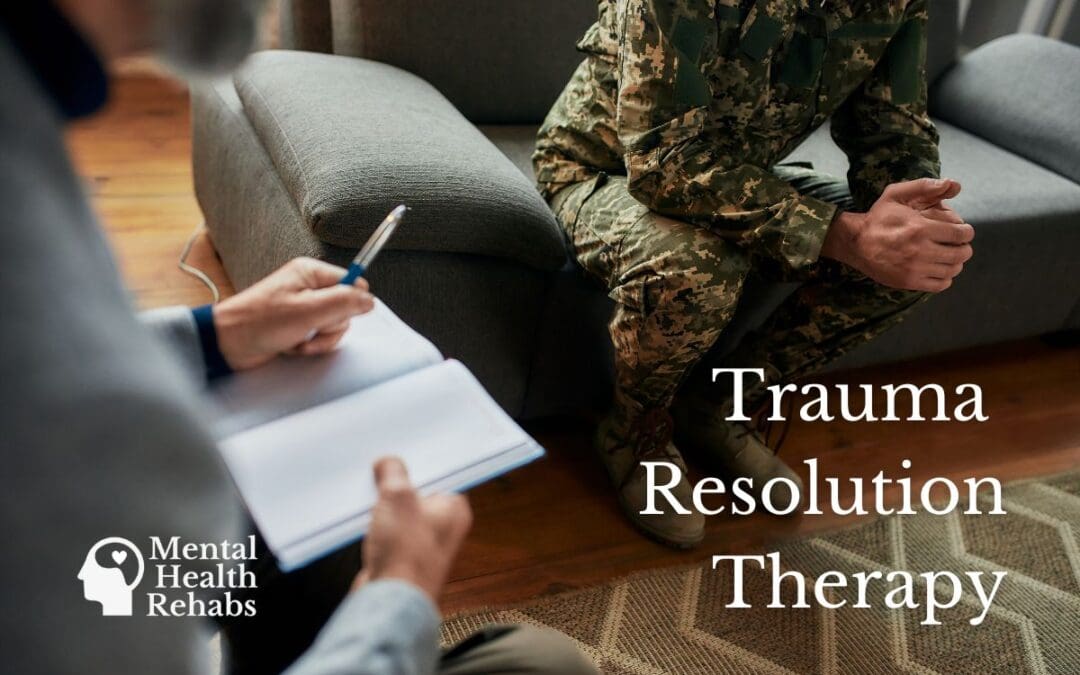Trauma is a psychological and emotional response to distressing events that can permanently alter how your brain and central nervous systems are wired. The resulting change can have a life-long impact. Side effects of experiencing trauma include flashbacks, nightmares, anxiety, depression, and intense fear, which can be hugely disruptive, interfering with everything from home and family life and romantic relationships to work performance.
Trauma resolution therapy is an increasingly popular method for healing from trauma. It focuses on helping survivors process their traumatic experiences, regain a sense of safety, and rebuild their life.
What is trauma therapy?
Trauma therapy is an umbrella term for specialized forms of treatment developed to address the unique symptoms of trauma. Traditionally, it refers to specific therapy modalities used for the treatment of post-traumatic stress disorder (PTSD) such as:
- Cognitive processing therapy (CPT)
- Eye Movement Desensitization and Reprocessing (EMDR)
- Prolonged exposure therapy (PE)
- Psychodynamic therapy
- Somatic therapy
- Trauma-focused cognitive behavioral therapy (TF-CBT)
There are a number of other trauma therapy alternatives, however, some of which are referred to as trauma-focused therapies. These may not have been developed with treatment of trauma in mind, but are nonetheless effective at helping patients cope with their symptoms either directly or indirectly.
Common symptoms of trauma
The effects of trauma can be far-reaching and long-lasting, negatively impacting both a person’s day-to-day functioning and overall quality of life. They can manifest in various ways, occurring immediately after the traumatic event or delayed, persisting for only a short period, or becoming chronic.
Physical side effects of trauma:
- Headaches
- Stomachaches
- Muscle tension or pain
- Fatigue
- Sleep disturbances (insomnia, nightmares)
- Increased heart rate
- Gastrointestinal problems
- Changes in appetite and weight
Psychological side effects of trauma:
- Intrusive thoughts (flashbacks, nightmares)
- Anxiety
- Depression
- Irritability
- Anger and outbursts
- Hypervigilance
- Emotional numbness
- Feelings of guilt or shame
- Difficulty concentrating
- Memory problems
- Self-esteem issues
- Social withdrawal and isolation
- Trust issues and difficulty forming close relationships
- Negative beliefs about oneself and others
How can trauma resolution therapy help?
Trauma can affect a person’s ability to trust others, form healthy relationships, and feel safe in the world. It can also lead to profound changes in how a person perceives themself, impacting their self-esteem and sense of control — but these aren’t all.
Living through trauma can cause the development of unhealthy coping mechanisms like avoidance or substance abuse (which aren’t uncommon). Such behavior can quickly compound the difficulties of a trauma survivor.
The unique approach of trauma resolution therapy makes it particularly well-suited to improving day-to-day functionality for individuals who experienced trauma.
Prioritizes dealing with trauma symptoms
The primary goal of trauma resolution is managing trauma symptoms. This practical notion can expedite trauma victims returning to normal life as quickly as possible. This is accomplished through an emphasis on self-soothing coping mechanisms geared to each patient.
Trauma response therapy is relatively new and still warrants greater clinical trials, but has already displayed great effectiveness, providing a long-term reduction in distress in as little as two weeks.
Improve emotional response to trauma triggers
Trauma therapy’s priority may be addressing the symptoms, but doing so can also help trauma survivors better process their experiences, desensitize them to triggers, and improve emotional resilience overall.
Creating effective coping mechanisms requires having an understanding of potential triggers and their potential reaction. Over time, these mental exercises strengthen self-awareness (important for pulling oneself out of the moment when a traumatic episode strikes) and can desensitize the individual to said triggers, similar to how running over a scenario in your mind can help you feel more prepared when it comes to pass.
Boosts self-esteem
One of the key ways that trauma resolution improves emotional responses is by encouraging patients to develop a positive sense of self. Patients are reminded to be compassionate toward themselves and to be patient with the pace of their progress.
Raising self-esteem can also improve feelings of control, but also reduce emotional distress after a traumatic-related episode has occurred.
Highly customizable
The effects of trauma can vary widely from person to person. Consider that 70% of adults have experienced trauma at least once, yet only 6% of the population has PTSD. Trauma resolution is highly personalizable and can easily be adjusted to meet the needs of patients experiencing vastly different symptoms.
Additionally, trauma response therapy can be used to complement other psychotherapy modalities—traditional or otherwise—without conflict. This is extremely important as trauma can also be a catalyst that causes other mental disorders such as anxiety or depression.
If you or a loved one has experienced a traumatic event, contact a mental health professional near you who can help you process your feelings in a safe and controlled environment.

